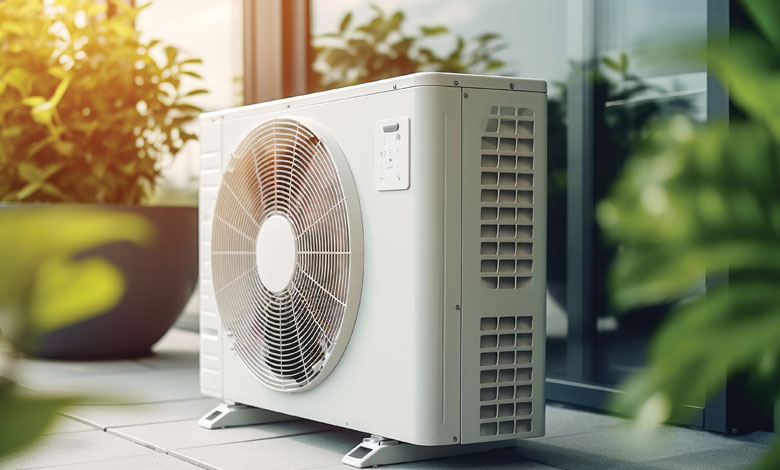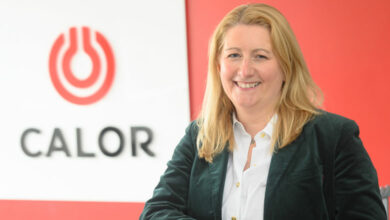Heat pumps for decarbonisation and good jobs: A compelling combination

Marie Cowan, Director of GSNI, and Ulster University’s Director of the Centre for Sustainable Technologies, Neil Hewitt, outline the potential for heat pumps to reduce carbon emissions, explain how they work, and highlight a forthcoming event for this sector.
UK Context
The UK Government was the first major economy to pass laws to end its contribution to global warming by 2050. This approach was made legally binding through the Climate Change Act 2008 (2050 Target Amendment) Order 2019 and commits the UK to reduce greenhouse gas emissions to net zero by 2050 relative to 1990 levels.
Northern Ireland
Recent figures suggest that between 45 and 50 per cent of electricity consumption is generated from renewable sources however heat still represents over half of the emissions in the energy system with a heavy reliance on fossil fuels. The Climate Change Act (NI) 2022 now commits the region to reduce emissions to net zero by 2050 with an interim target of a 48 per cent reduction in emissions by 2030.
The potential of geothermal energy to support the emissions reduction targets through its direct use as a low carbon energy source is acknowledged in the Northern Ireland Executive’s energy strategy – The Path to Net Zero Energy – and associated actions plans 2022, 2023 and 2024.
Electrification of heating
The Intergovernmental Panel on Climate Change’s (IPCC) Sixth assessment Report (March 2023) said that net zero energy systems will include the electrification of heating which will “rely substantially on heat pumps. Space cooling and water heating are expected to be largely electrified. Building electrification is expected to rely substantially on heat pumps, which will help lower emissions both through reduced thermal requirements and higher efficiencies”.
In Northern Ireland, access to low carbon electricity provides a significant opportunity to electrify heat with heat pumps and heat networks set to play a foundational role.
Knowledge exchange and networking event
The Geological Survey of Northern Ireland, an office of the Department for the Economy (DfE), and Ulster University are hosting a Heat Pumps: Knowledge X-Change and Networking Event on the 20 June 2024. The aim is to support a cluster scale-up and will focus on innovation, entrepreneurship, standards, and skills.
This event is for SMEs, entrepreneurs, academics, policymakers, estate managers, corporates, investors and third sector participants involved and/or interested in the heat pump engineering, manufacture and installation supply chain.
This initiative is supported by professional scientific and technical advice from the NI Geothermal Advisory Committee (GAC).
NI Geothermal Advisory Committee
The purpose of the GAC is to inform and advance the development of geothermal as a strategic low-carbon source of heating, cooling, energy storage, power, and jobs in Northern Ireland.
One of its roles includes considering how to enable the growth of a geothermal sector, and the related jobs, productivity, competitiveness, and skills, and one associated action is to understand and communicate the needs of businesses and help identify critical policy levers necessary to establish a geothermal sector in Northern Ireland.
The case for heat pumps
Jan Rosenow, Director of the European Programmes at Regulatory Assistance Project and Honorary Research Associate at Oxford University, regularly analyses the shifting running costs of heat pumps compared with gas boilers.
In a paper for Carbon Brief in March 2024, Rosenow explained that heat pumps have similar running costs to a gas boiler, even though electricity is more expensive than gas, because they produce heat at a more efficient rate: “It is also the high efficiency of heat pumps that makes them particularly interesting. You put in about one unit of electricity and get about three units of heat out of your heat pump. That is much more efficient than a typical gas boiler, which would usually have an efficiency of maybe 90 per cent. You have an efficiency of 300 per cent on average, which makes this a very compelling proposition and minimises the size of the energy system as a whole.”
|
How does a heat pump work? A heat pump operates just like your refrigerator, i.e., in a fridge, heat is taken from an insulated box and releases it into your kitchen, whereas a heat pump takes heat from outside and releases into another insulated box i.e., your house. To do this, we take a refrigerant that boils at a lower temperature (and pressure) to that of for example outside air and compress that gas (typically with an electrically driven compressor) to a higher temperature (and pressure) above that of your home. Thus, the gas now condenses to a liquid, releasing its heat to the home, and the high-pressure liquid is expanded back to a low-pressure liquid to start the process again. Geothermal heat pumps, also known as ground source heat pumps (GSHPs), utilise heat from the ground e.g., soil, rock, aquifers etc. as opposed to air source heat pumps (ASHPs) which utilise ambient air as a heat source. The advantages of GSHPs are that they typically provide higher heat supply temperatures in winter than ambient air, and the heat pump would require less electricity to run the compressor. Subsequently this has a lesser impact on existing electricity distribution networks. However, this does come at a higher capital cost of the options such as ground coils, vertical boreholes etc. Therefore, what sort of performance can be achieved? An ASHP heating a typical Northern Ireland home will experience a typical coefficient of performance (COP) of two to three i.e., for every KW of electricity consumed, the heat pump will deliver 2KW to 3KW of heat to the building. A ground source heat pump on the other hand will deliver 3KW to 4KW of heat for every KW of electricity consumed. Taking a typical home of 12,000 kWh of heating required annually, the electrification of heating with an air source heat pump will cost between £1,200/year to £1,800/year, a ground source heat pump will cost £900/year to £1,200/year, whereas an oil boiler running cost is £880/year and a gas boiler will cost £1280/year to heat this home. The carbon emissions are however radically different with heat pumps being able to reduce CO2 emissions by up to ¼ when compared to an oil boiler. “Northern Ireland is blessed with an accessible geothermal heat resource, that when boosted with heat pumps can achieve a COP of almost nine. We will need low temperature (the so-called 5th Generation) heat networks to bring this valuable heat resource to our homes. “Research at Ulster University has developed such heat pumps, that can also deliver much higher temperatures i.e., those required by the Northern Ireland dairy industry for example. Thus, pathways to decarbonisation of heating are opening, and while with many challenges remaining, opportunities for Northern Ireland companies to develop such systems is emerging,” explains Neil Hewitt, Professor of Energy and Director of the Centre for Sustainable Technologies, Ulster University. |
Marie Cowan, GSNI and Professor
Neil Hewitt, Ulster University.







